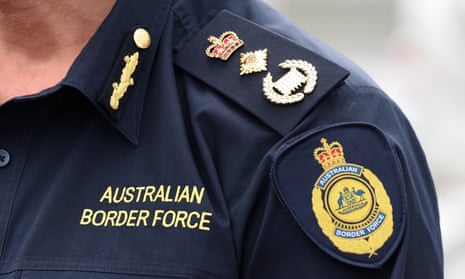Australian Border Force workers will walk off the job at all international airports simultaneously for 24 hours on 9 November, potentially stranding thousands of travellers across the country.
The strike is a dramatic escalation of a long-running industrial dispute. In September ABF workers at airports stopped work for two hours at a time in rolling stoppages with only one airport’s operations closed at a time.
The strike on 9 November will be for 24 hours across all of Australia’s airports simultaneously, potentially throwing Australia’s border operations into chaos.
About 90,000 international travellers pass through Australian airports every day.
The nationwide strike is designed to prevent the ABF being able to cover for short strike actions by flying managers around the country to act as strike-breakers, a practice known by the ABF as “surge deployment”.
Community and Public Sector Union national secretary Nadine Flood said November’s strike would cause far greater disruption than earlier industrial action.
“We expect Border Force to continue their expensive and heavy-handed tactic of flying managers around the country to act as strike breakers, but it’s clear that many of them know that this divisive tactic is doing nothing to resolve this dispute,” she said.
Last month 91% of the ABF workforce voted to reject the government’s latest pay increase offer which was lifted to 2% from the original offer of 1.5%.
The union says the agreement offered by ABF still strips working conditions and rights and reduces the take-home pay of some staff by $8,000 a year.
“We’ve made it clear all year, both at the negotiating table and beyond, that the broader dispute across the public sector can be resolved if the Government moves to maintain rights, conditions and take-home pay with a reasonable pay offer,” Flood said.
“We are open to making minor, sensible changes to agreements, but wholesale stripping of rights like work and family protections just isn’t going to fly.”
The ongoing industrial action is a further misstep in the troubled genesis of the newly-formed ABFwhich began operations in July.
The new body attracted widespread public anger in August when it announced it was launching Operation Fortitude on the streets of Melbourne, stating ABF officers would be “speaking with any individuals we cross paths with” and checking their visa status.
Massive protests on the streets of Melbourne led to the hasty abandonment of the operation, and a retraction and apology from ABF.
Speaking on Friday at the Migration Institute of Australia conference in Perth, WA Regional Commander of the Australian Border Force Rod O’Donnell conceded the aborted operation had damaged trust in the new organisation.
“We are very conscious of the fact that we need to be very collaborative, and co-operate ... to become a trusted global gateway. Particuarly that trust bit. As we all know, trust is not easily earned, it’s very easily lost, we recognise that,” he said.
He said Operation Fortitutde had been a “hiccup” for the new agency.
“We got that wrong in terms of the way we communicated ... we’ve lost trust with the Australian people with the way that was actually taken,” he said.
“I get the frustration and the level of trust that we’ve lost as a result of that incident.”
O’Donnell said ABF would continue to conduct checks of immigration status “driven by intelligence” but not in the manner forecast by Operation Fortitude.
“The idea of randomly stopping people in the streets, is not something we are going to do, it is not something we have the power to do, just to randomly stop and check people,” he said.
O’Donnell said strike action had been disruptive for the new agency and its public image. He said during the last strike action he had been seconded to stamp passports at Perth Airport, a job he hadn’t done “in about 20 years”.
“You sort of saw the frustration of people when they’re just trying to get through the airport and they’re lining up for even longer than they normally do and then saying ‘you guys don’t know what you’re doing’.”
O’Donnell described a massively increased workload for the Department of Immigration and Border Protection – the merged immigration and customs departments – and alluded to a stretched workforce.
In a typical week, the DIBP and ABF grant about 95,000 visas, inspect 1,948 sea containers, confer citizenship on 2,600 people, clear nearly 650,000 passengers on 3,679 flights, seize 632 illicit drug imports, inspect 1m mail items, survey 3m square nautical miles, clear 687 ships and locate 318 people unlawfully in Australia.
“Roughly one million mail articles a week enter Australia. We’re supposed to, out of those, find all the bad stuff. Challenging, with a workforce that doesn’t quite allow us to do as much of that intervention in that space as we’d like to.”
Last week, department secretary Michael Pezzullo reported in senate estimates his agency was “stressed”, and some parts of its workforce lacked motivation and morale.
“It is a busy department,” Pezzullo said. “It is stressed; it is stretched. It has lots of things to do, like many departments of state. It is particularly busy because of the volumes that we have to deal with.”
Several department staff have told Guardian Australia there has been an exodus of senior management from DIBP, in particular to other public service departments.

Comments (…)
Sign in or create your Guardian account to join the discussion